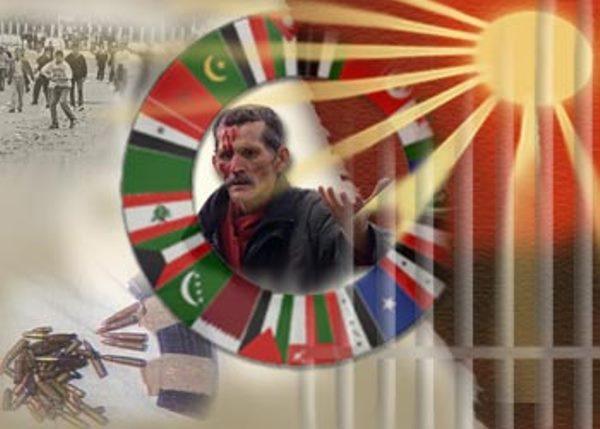
Most of the Arab region is rife with conflicts of varying causes and forms, often times interlacing with and emerging from each other. The failure of national states and political regimes to achieve development, instate democracy, maintain sovereignty, and achieve Arab integration is the key reason behind the aggravation of these conflicts. Still, the complex historical contexts of the Arab region, remolded in accordance with the visions and interests of foreign powers, suggest other interpretations that must be considered by holding multi-sided approximations of all those pathways.
Regardless of their reasons, conflicts have become a prominent feature in the Arab region and cover a significant portion of its map, especially in recent years.
Among the manifestations of these conflicts are nationalist and religious identity-related conflict; denominational, sectarian, and ideological conflict; conflict between states and armed groups; conflict between occupation and resistance; and conflict between powers seeking partition and fragmentation and powers calling for unity. In addition, the Arab Spring caused a new sort of conflict to emerge between revolution and counter-revolution powers, or the veterans of the ousted regimes and new players seeking to establish new regimes.
Amid the escalating dynamics of old and new conflicts and the insatiable desire of vast portions of Arab populations to make real change, the region is suffering from the accumulation of instability.
Hence, the objective of this discussion is to discuss the causes, manifestations, and anticipated repercussions of the conflict as well as the potential scenarios of change through the following important questions:
- To what extent have the political and economic failures of post-colonial states contributed to the triggering and aggravation of conflicts?
- What are the reasons behind the augmentation of sectarian and denominational conflicts in the wake of the Arab Spring?
- Do the appearance and increasing power of armed groups pose a threat to the concept of state, or should they be regarded as a different form of change?
- The revolution and counter-revolution: How will the region's political map look in the coming phase?
- To what extent can the current conflicts redraw borders and create a new Middle East?
Speakers:
- Maha Azzam, Head of the Egyptian Revolutionary Council
- Lina Khatib, Director of the Carnegie Middle East Center
- Juan Cole, Richard P. Mitchell Collegiate Professor of History at the University of Michigan
- Abdelwahab El-Affendi, Reader in Politics at the Centre for the Study of Democracy, University of Westminster
- Hemin Hawrami, Head of Kurdistan Democratic Party (KDP) Foreign Relations Office

